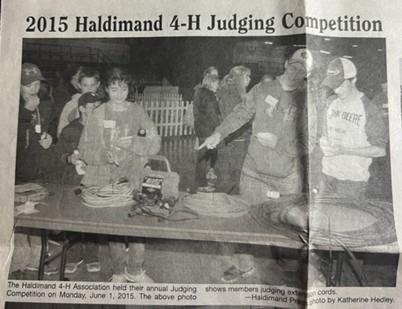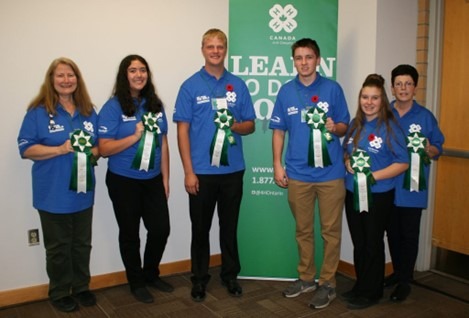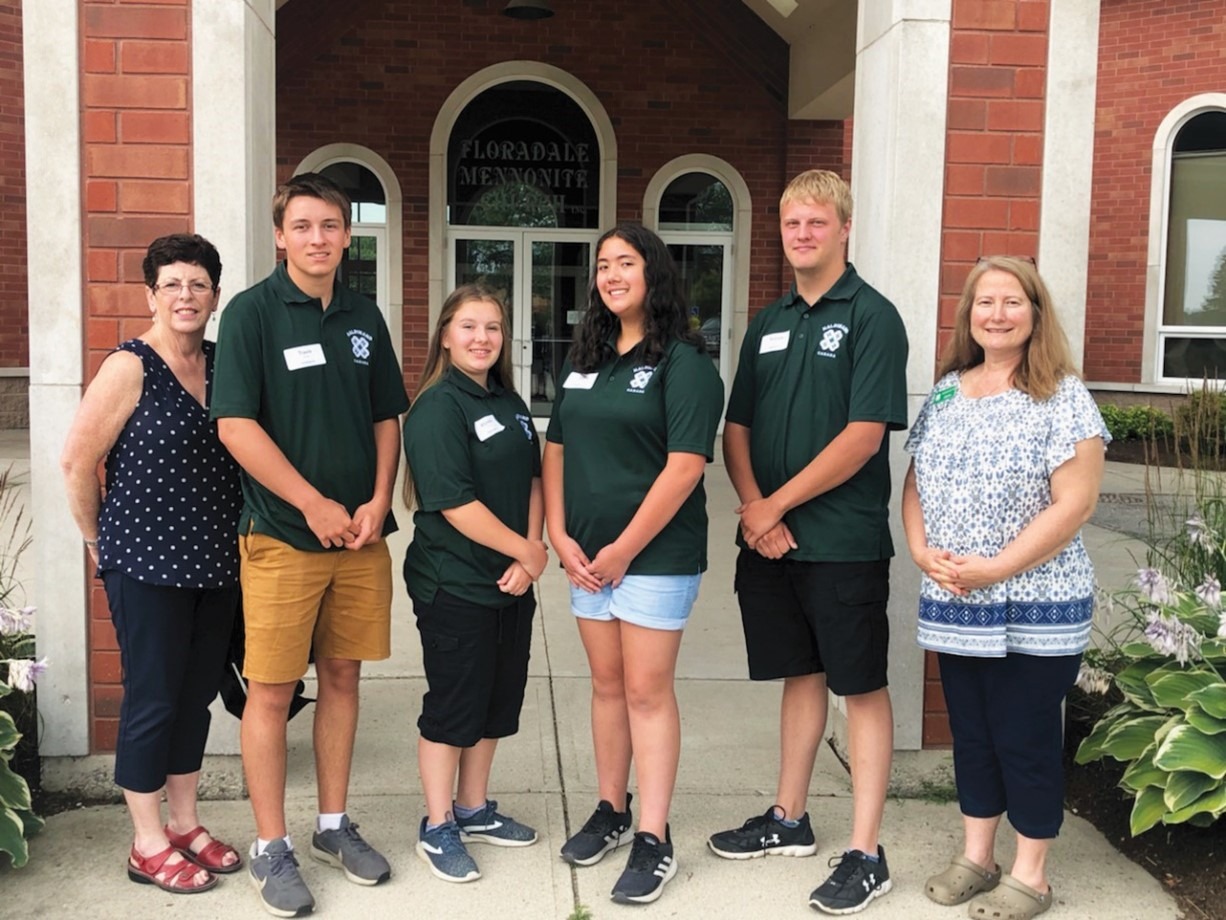Written by: Joyce Lyn Fox
During my 10 years in 4-H, I have experienced a TON of different things. However, there are a few that truly stick out to me when I look back on everything I’ve done. Here are the top three lifelong skills I’ve learned with 4-H Ontario!
Patience
This skill took many attempts for it to stick. It was especially prevalent in the many years I built sheaves in the sheaf club – one of the first clubs I ever joined. A sheaf is bundle of grain typically made from either wheat, oats or barley. Building a sheaf requires many steps.
The first is cutting your grain. Done by hand, it takes a couple of hours to cut enough stalks. Usually, the product will look like this:

When the grain is dry, the leaves have to be taken off and sorted, and then it can be placed piece by piece into a mold. Once there, it is tied and then extra touch-ups are done to make it ready for the fair! With my very first sheaf, this process seemed quite overwhelming. I had assistance from my leaders, but towards the end I got tired and shoved all the pieces in to finish the job.

Needless to say, having to spend around 30 hours to build my first sheaf was not easy. However, as I’ve continued to make sheaves year after year, I have been able to hone my skills. It took a long time to learn how to properly follow all the steps and persevere to the end of the process. But, being able to remain patient throughout it all was a lesson I will always keep with me. And having received a red ribbon from the Royal Agricultural Winter Fair for my sheaf has made me glad that being patient pays off!

Communication Skills

The communication skills I’ve learned in 4-H are those which I continue to use in my everyday life! For me, this started with learning how to judge. With judging, there is a formulated process that we use to compare four objects in a certain class. A common example of a judging class would be soccer balls. The process is like so:
- Stating your placing of the class:
- I place this class of soccer balls 1, 2, 3, 4.
- Stating your reasoning for why you placed the objects the way you did
- I place one at the top because…(i.e., it is inflated properly and brand new).
- Restating your placement:
- For these reasons, I place this class of soccer balls 1, 2, 3, 4.
Being able to give reason and justification improves your public speaking skills tremendously! It helps to improve your critical thinking skills – especially since it makes you think on the spot. You have to be able to make a decision quickly based on what you have. Then, being able to explain why you made your decision ensures that you can effectively state the logic! Practice with judging has aided me in being confident in my public-speaking skills. I know how to use both my verbal and non-verbal skills, such as strong eye contact and tone of voice, to demonstrate my confidence. Even as I continue my studies, I use these skills in my presentations, when I am meeting new people and as a 4-H Ontario Ambassador!
Learning How To Handle Failure
Being in 4-H, the motto of “Learn To Do By Doing” has been one of the things that has made the strongest impression on me. For many years, I have been a participant in Go For The Gold (GFTG) trivia competitions. In 2019, I was able to represent Haldimand County 4-H at the provincial level at the Royal Agricultural Winter Fair, and we placed fifth in the province that year!

However, it had been a long journey to be able to get to this point.
For many years, I had been part of the local division of Go for the Gold for my county. In 2018, I had finally placed first within my county level which qualified me to join the team to advance to regionals. As the youngest one on the team that year, it felt a bit intimidating – even to be an alternate – heading into the competition. Regardless, I studied hard to prepare myself for the big day.
On the day of the competition, I was so well prepared that I remained on all games as a reoccurring player since I knew the manuals inside and out! As we advanced to the finals, I was nervous and excited as I had faith that my team could pull off a win. However, we lost to Peel 4-H by 25 points in the final game.
In the moment that the game ended, I asked myself how we weren’t able to win that final game. With the score being so close, I was disappointed in how the outcomes had played out. On the ride home from the competition, my mom reminded me that failure was a normal part of life; you have to be able to see where the mistakes were and learn from it. Hearing these words rang true to the 4-H motto in my mind – “learn to do by doing.” In order to become better at something, you have to try it and learn where you can improve.
From there, I was only more motivated for the next year’s competition. In 2019, Haldimand County 4-H performed extremely well in the regional competition. Having practiced the year before, I knew what to expect and it helped me become faster at responding to the questions. The experience only made me stronger, and we were then able to advance to the provincial competition!

Being able to acknowledge failure is one of, if not, the most important lesson I have learned in my life. Learning to do by doing has enabled me to embrace many opportunities that I may not have embraced otherwise. I am able to look at my mistakes and recognize that it’s all part of the learning process rather than seeing it as a setback.
All three of these skills: patience, communication and learning how to handle failure have allowed me to grow throughout my time in 4-H. Along with helping me in my everyday life, I am able to share the importance of these skills with those around me. 4-H offers many valuable opportunities for both hands-on learning and personal growth. Participation in 4-H has not only expanded my knowledge of agriculture but also shaped my personal growth as to who I am today.
Written by 2023 4-H Ontario Ambassador, Joyce Lyn Fox
Joyce is currently studying commerce at Queen’s University and has an interest in the agricultural sector, consulting and corporate law.